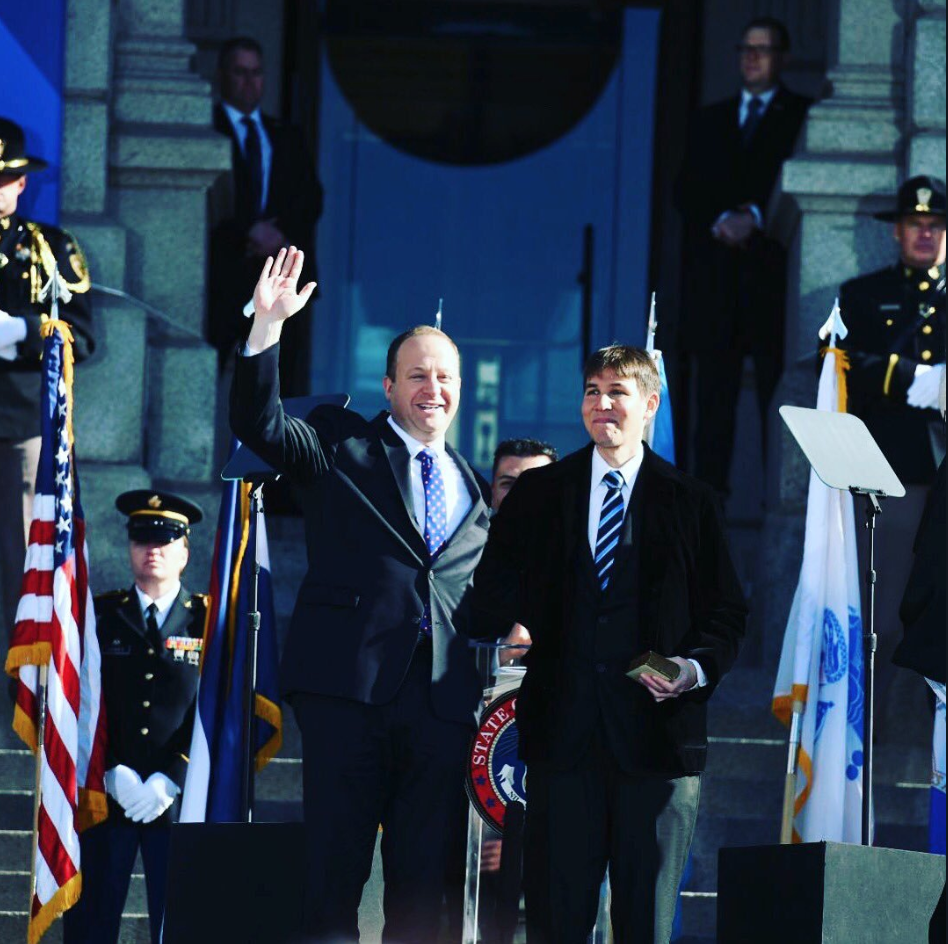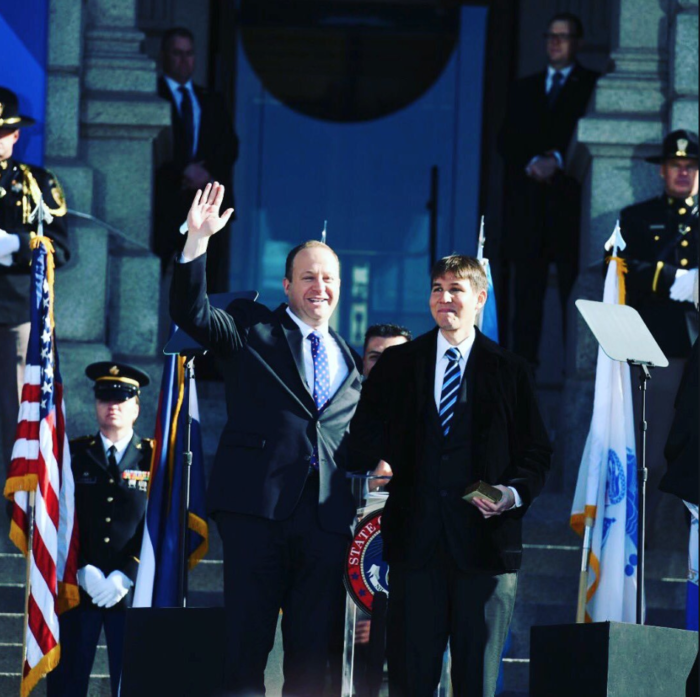
When the rainbow wave swept LGBTQ candidates into office across the country during the 2018 election, it crested in an unlikely place: Colorado, once known as the “hate state,” is now led by Jared Polis, the nation’s first openly gay governor.
“The election of Jared Polis is incredible — it’s a testament to how far Colorado has come,” said Daniel Ramos, executive director of One Colorado, a statewide advocacy organization for LGBTQ individuals and their families. “In many ways, Colorado continues to lead and to really show that LGBTQ folks can run for statewide office.”
It’s a stark change. In 1992, Colorado voters passed Amendment 2, a statewide constitutional amendment that banned state and local governments from prohibiting discrimination on the basis of sexual orientation. It earned Colorado the “hate state” moniker and prompted similar initiatives to be considered in six other states, including Oregon, Idaho, and Arizona (most didn’t make the ballot; Oregon’s and Idaho’s were defeated). In 1996, Amendment 2 was deemed unconstitutional by the U.S. Supreme Court in Romer v. Evans.
In the two decades since that landmark equal-rights battle, Colorado — and the West more broadly — has transformed into a model of greater LGBTQ political representation. The West claims more than one-third of the 670 LGBTQ-identifying elected officials in the United States, according to the LGBTQ Victory Institute.
“There are a lot of bright spots in the West,” said Sean Meloy, senior political director of the LGBTQ Victory Fund, a political action committee. Beyond Polis and Brianna Titone (the first transgender member of Colorado’s state legislature, also elected in 2018), Meloy points to Oregon’s Kate Brown, who became the country’s first openly bisexual governor in 2015 and was reelected in November. There’s also insurance commissioner Ricardo Lara, California’s first openly LGBTQ statewide elected official, and Nevada Senate Majority Leader Kelvin Atkinson, who proclaimed on the Senate floor in 2013: “I’m black. I’m gay.”
Meloy sees the 15 years of government experience for Polis (who is also the state’s first Jewish governor) as a lesson for the more than 150 LGBTQ individuals elected nationwide in 2018. “It’s a starting point for them,” he said. “It means they’re going to be able to continue to move up the ladder just like Jared did.”
Advocates don’t want to overlook the work still to be done, however. People who identify as lesbian, gay, bisexual, transgender, and/or genderqueer comprise just 0.13 percent of all elected officials, even though they make up 4.5 percent of the U.S. population. Hate crimes continue to rise across the country, and five Western states still lack nondiscrimination protection for LGBTQ individuals. (Wyoming’s legislature voted recently to weaken its anti-discrimination policies.)
Colorado LGBTQ leaders see Polis’s election as one in a string of promising changes. In November, Colorado became the fifth state (plus the District of Columbia) to permit an “X” gender marker on driver’s licenses; in December, the Colorado Department of Public Health and Environment added “intersex” and “X” as optional identifiers on birth certificates. And earlier this month, the Denver City Council banned gay conversion therapy for minors in the city, becoming the first municipality in Colorado to do so.
It’s enough for Ramos to bestow Colorado with a new nickname: “Over the last 20 years,” he said, “we have really moved from the hate state to the great state.”
This story first appeared in the Bitterroot newsletter.

